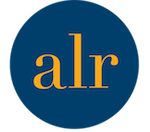How organizations can maintain trust in a crisis
We recently attended a luncheon hosted by the PRSA of Dallas and had the privilege of hearing Fred Cook, director of USC Center for Public Relations, discuss the 2018 report on the Evolution of Ethics. The report surveyed PR leaders from agencies and corporations around the globe to predict where the communications field is headed.
While there was extensive data about the changing environment in the public relations industry as we embrace new technology, a shifting media landscape and the merging of paid, earned, shared and owned media, perhaps the most interesting statistics gave insight into the need for and complication of crisis communications.
According to the survey, four of the top five most likely ethical problems for the PR industry are often associated with communications around crises, especially those involving human relations issues or cultural movements such as #MeToo:
According to our survey, the distribution of fake news topped the list of potential ethical issues facing the PR industry. Read more about what execs and students say about ethical behavior in our 2018 Global Communications Report here: https://t.co/FUBXryFDjS pic.twitter.com/dkQT16NXHY
— USC Annenberg Center for PR (@Center4PR) July 10, 2018
Further, it is clear that most public relations practitioners believe everyone – including those who have acted unethically – has a right to counsel during a crisis, but that doesn’t necessarily mean these PR pros want to be the ones offering the counsel.
82% PR professionals agree that individuals and governments have a right to public relations counsel, but 95% PR professionals said they would personally not represent or work for individuals or organizations due to ethical concerns. Full report here: https://t.co/FUBXryFDjS pic.twitter.com/rDrH7E3iaC
— USC Annenberg Center for PR (@Center4PR) August 13, 2018
At ALRC, we believe we can work with anyone who admits wrongdoings and seeks to communicate honestly and forthrightly.
Finally, one of the most interesting statistics we discovered relates to the industry-specific areas PR professionals worldwide associate with having considerable ethical issues.
Of course, obvious sectors such as tobacco, firearms and politics top the list, but right below these categories is the area in which our Agency most often works – religion.
USC Center for Public Relations 2018 report on the Evolution of Ethics
So why are religious organizations seen as having ethical issues? It is our belief most theological crises stem from a clash between faith and culture or colliding worldviews. Specifically, the question of: what is truth and what is grace?
For religious organizations, led by Christian principles, the Bible guides both truth and grace. These core values can sometimes clash with societal or cultural views, causing misunderstanding and tension.
In reality, there are no more ethical issues in working with religious organizations than there are in working with any other industry. At our Agency, we believe the guiding principles of having God as your client can help us navigate these difficult situations for our clients.
In a crisis situation dealing with a potential ethical issue, communications must balance grace and truth. Our job is not to make the public believe that bad is good. Rather, it is to speak with authenticity and transparency on behalf of our clients.
Not everything in a crisis is black and white; crisis PR is about helping others see the brightest shade of gray. This happens when an organization accepts responsibility and seeks to do not just the right thing but what is right.
At the end of the day, when done effectively, organizations can maintain trust with its publics and overcome ethical issues.
(The full Evolution of Ethics report can be downloaded here.)


